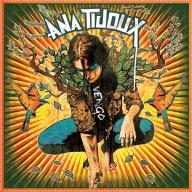In 2003, Tijoux cut the hit single "Lo Que Tu Me Das" in duet with Julieta Venegas. She then moved back to France briefly, where she cut the solo single "Santiago Penando Estas," which appeared on a tribute album for Chilean composer, writer, and artist Violeta del Carmen Parra Sandoval; the album charted in both Chile and France. In 2004, Tijoux and Seo2 re-formed Makiza with new collaborators. They recorded and released Casino Royale in 2005. The reunion was short-lived.
In 2006, Tijoux decided to pursue a solo career in earnest. She cut the single "Ya No Fue," but her debut album was never released. She collaborated with Venegas again in 2007 on the track "Eres Para Mi," which appeared on the latter's hit album Limon y Sal. Later that year, Tijoux cut another album entitled Kaos for the independent Oveja Negra. The set's first single, "Despabilate," was a hit and she was nominated for Best New Artist and Best Urban Artist at the Latin MTV Awards; she and Venegas were also nominated for Song of the Year. Tijoux abandoned Latin pop (and singing, for the most part) for her next album, the breakthrough back-to-hip-hop set 1977, which was released in 2009 and established her as a fierce MC. It was critically and commercially successful. The album was picked up for distribution by major independent Nacional Records and re-released in 2010, with the title track becoming its first hit. She followed this with the self-released Elefant Mixtape in 2011, and the album La Bala, which was also released by Nacional Records in 2012. It became an international smash. Tijoux received a Grammy nomination for the album in the Best Latin Rock, Urban or Alternative Album category. That same year, Tijoux's "1977" was featured in a season four episode of Breaking Bad.
The artist spent most of 2013 recording her follow-up, a provocative mix of soulful, horn-heavy, funky cumbia, throwback hip-hop, neo-soul, and Andean folk. She even reprised singing on a couple of cuts. Vengo was released in March of 2014. ~ Thom Jurek, Rovi














